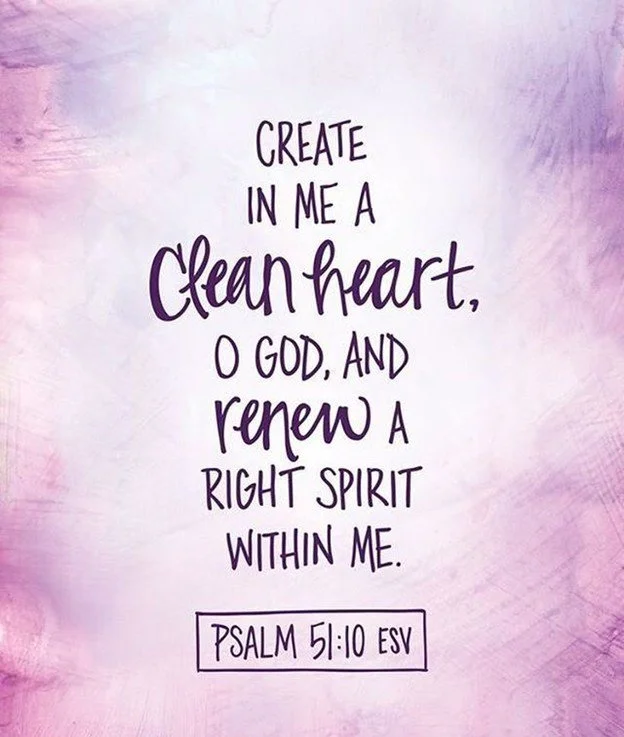As we reach the halfway stage of our Lenten journey, it is good to pause to check in how ‘we’ are doing. Did you notice what I just said? Checking to see how ‘we’ are doing. This Lent I have once again noticed how much I like to be in control of my life, to be “in charge.” Probably most of us think we know what is best for us and tend to forget that we need help and guidance from God.
As the word Lent “stems from the old English word lencten springtime, spring” on Ash Wednesday I decided to do some internal spring cleaning during this Lent. Since I have always liked the prayer, “Create in me a clean heart, O God, and renew a right spirit within me” Psalm 51:10, this was what I prayed for. In hindsight, I remember thinking, “Be careful what you wish [or pray] for.” Though “my” plans focused on getting ready for some almighty spring-cleaning of my heart, that became secondary to what transpired. An allergic reaction to a new medication caused my skin to peel and shed.
Then, just before Lent, I stumbled upon the reflection, A Time for Skin-shedding by Joyce Rupp. As if that were not enough of a ‘God-incidence’, a friend also forwarded her reflection to me. Though the title instantly resonated with me, it was her closing sentence which really got my attention, “May this Lent be a time of skin-shedding for you, my readers, a time when you discern what are your strengths and what are your weaknesses.” As I pondered these words, I thought to myself, “Okay God, I am shedding my skin - what is the message here?”
In the first reading on this Third Sunday of Lent, we hear about Moses at the burning bush, where he hears God tell him, “Remove the sandals from your feet, for the place on which you are standing is holy ground.” I doubt that God was asking me to remove my skin. However, prompted by Joyce Rupp’s reflection, I wondered whether God was wanting me to see how spiritual skin-shedding could help me discover what my strengths are and what weaknesses are keeping me from growing. Was I encouraged to shed my spiritual skin so I could grow spiritually?” How could I shed my spiritual skin this Lent? In Ephesians 4:22 we read, “Strip yourself of your former nature [put off and discard your old unrenewed self] … And put on the new nature, [the regenerate self] created in God’s image.” I, who like to be in control of my life, certainly would need God’s help to shed my spiritual skin not just once but again and again.
Lent is the time to remove obstacles to grace. Our gracious God is like the gardener in the Gospel who said to the owner of a fig tree not bearing fruit, let me “dig around it and put manure on it.” God patiently works on the soil of our lives and often in unexpected ways, like using skin-shedding to teach me. The ‘manure’ in our lives tends to be full of surprises. Thankfully, it also contains the graces we need to help us shed spiritually and learn to embrace our weaknesses and bring out the best in us, who are wonderfully made. With God’s grace we can change and grow throughout this Lent so by Easter we will not be the ‘con-version’ of ourselves but the true women and men created in God’s image and likeness and comfortable in our own skin.
Sr. Magdalena Vogt, cps
IMAGES: Josh Applegate/Grant Whitty| Unsplash












